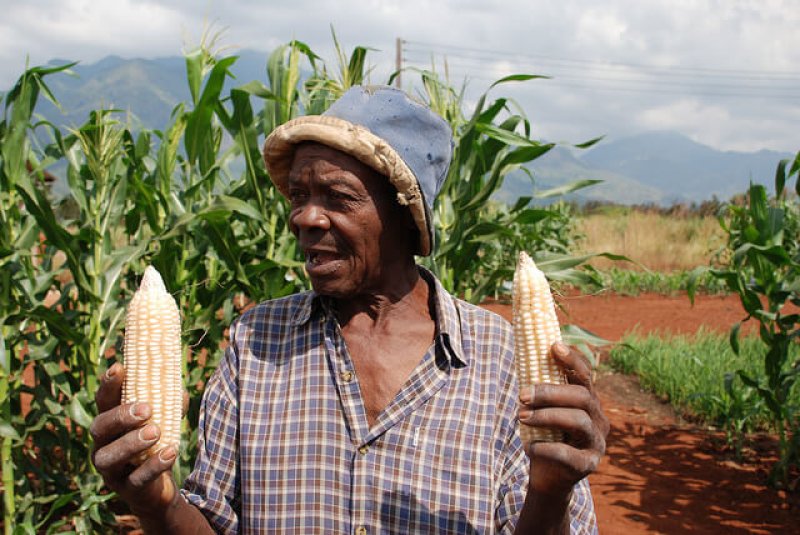“I feel I wasted my time working for over 20 years as an electrical engineer in Johannesburg,” said Khambi Frans Malele as he stood and told more than 30 people assembled in a small, make-shift tent in South Africa his story of becoming a successful farmer.
His audience was a delegation of Nigerians eager to learn how farmers had benefitted from the use of biotechnology in South Africa, which has become the frontrunner for genetically modified (GM) crops on the continent. Government officials from South Africa’s Gauteng Province, business representatives and other farmers were also in attendance.
As Nigeria prepares to commercialize its first GM crops this year, the African Agricultural Technology Foundation (AATF) organized the tour, in collaboration with South Africa-based AfricaBio, to give delegates a chance to meet small-scale farmers who are using agricultural biotechnology to improve their livelihoods.
…
“I was lucky I started with the Bt cotton because I didn’t have to bother with the drought and worms,” [said Malele].
Insect-resistant Bt cotton was the first GM crop grown in South Africa in 1997. Now herbicide-tolerant cotton and varieties that provide both herbicide tolerance and insect resistance are also grown. Statistics show that virtually no conventional cotton is grown in South Africa. The herbicide-tolerant/insect-resistant cotton accounts for more than 95 percent of the cotton planted.
Read full, original post: Nigeria learns from South Africa’s experience with GMOs































